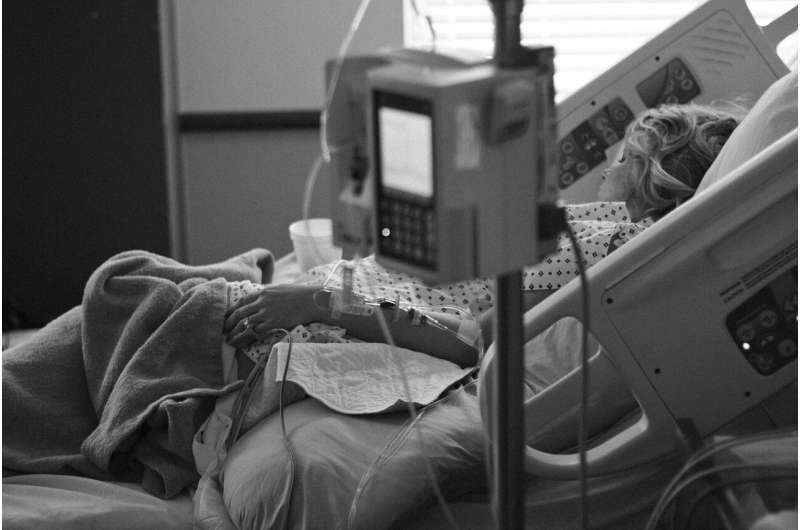Credit: Pixabay/CC0 Public Domain
ICU stays may be associated with a higher risk of developing dementia, according to a new study by researchers at RUSH.
Researchers found that hospitalization in intensive care units was associated with double the risk of dementia compared with those who did not experience ICU hospitalization.
The findings were presented during the Alzheimer's Association 2022 International Conference in San Diego. RUSH Alzheimer's Disease Center epidemiologist Bryan James, Ph.D., coauthor of the study, said that while ICU hospitalization due to critical illness has been linked to subsequent cognitive impairment in older patients, fewer studies have demonstrated a relationship between ICU hospitalization and a long-term risk of developing Alzheimer's or other age-related dementias.
Increased ICU hospitalizations during pandemic
"Given the high rate of ICU hospitalization in older persons, especially during the COVID-19 pandemic, it is critical to explore this relationship," James said. "ICU hospitalizations may be an under-recognized risk factor for dementia in older adults."
Researchers used data from annual cognitive assessments from Medicare claims of approximately 4,000 people in five different ongoing studies: the Memory and Aging Project, the Religious Orders Study, the Minority Aging Research Study, the Clinical Core Study and the Latino Core Study. The studies are decades-long efforts that recruit participants to undergo annual testing, sample collection and organ donation after their death.
The results showed that adults who experienced an ICU hospitalization had double the risk of developing Alzheimer's disease or another type of dementia in subsequent years compared with those who did not experience an ICU hospitalization.
Contributing factors
James said it was unclear why ICU hospitalizations may be associated with higher rates of dementia, but there were several factors researchers were pursuing.
"The critical illness itself that leads to hospitalization could result in damage to the brain—for example, severe COVID-19 has been shown to directly harm the brain," he said. "Second, specific events experienced during ICU stay have been shown to increase risk for cognitive impairment, including infection and severe sepsis, acute dialysis, neurologic dysfunction and delirium, and sedation."
James said it was up to health care providers and researchers to determine a path forward for patients who may be facing cognitive issues as they exit ICU care.
"Health care providers caring for older patients who have experienced a hospitalization for critical illness should be prepared to assess and monitor their patients' cognitive status as part of their long-term care plan," he said.
Provided by Rush University Medical Center






















